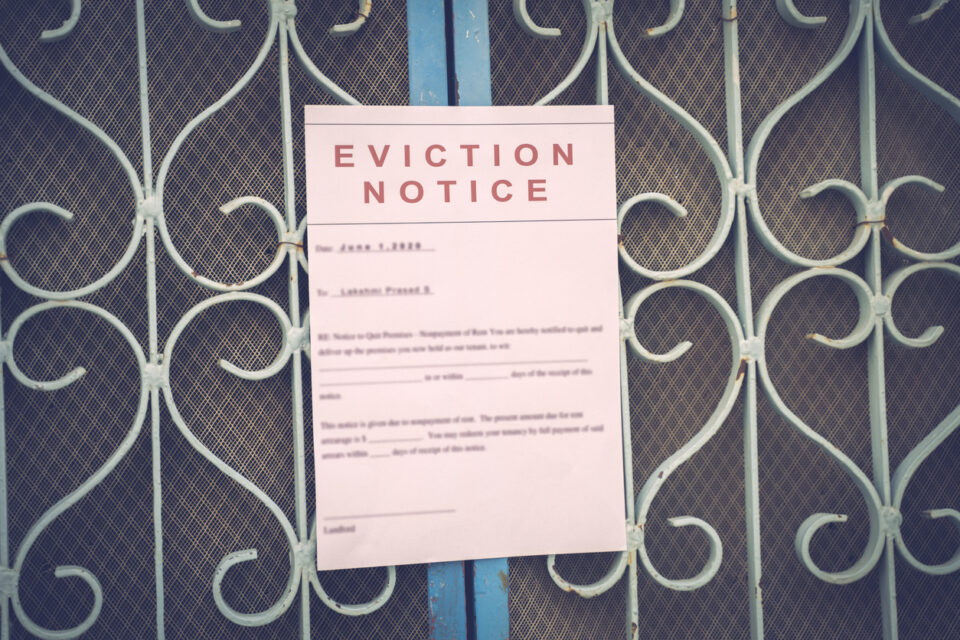General Administrative Order 2020-09 Concerning Evictions – What do Illinois Community Associations Need to Know?
Date
December 28, 2020
Read Time
4 minutes
Share

In response to the ongoing COVID-19 pandemic, on December 14, 2020, the Chief Judge of the Circuit Court of Cook County entered General Administrative Order 2020-09 (“GAO”), which alters the procedures for eviction and consumer debt cases, including condominium assessment collection cases.
The GAO establishes an “Early Resolution Program for the Municipal Department” (“ERP”), which “will provide legal aid services, mediation services, and community support resources to litigants” involved in eviction and consumer debt actions. ERP resources are available for eviction and consumer debt actions filed after March 27, 2020.
The GAO also imposes the following new schedule and requirements for eviction cases:
- Submission of Notice of the ERP. The GAO requires a plaintiff initiating a new eviction action to (i) include notice of the ERP with its Summons in English, Spanish and Polish; and (ii) attach a copy of the ERP notice to the Summons filed with the Clerk of Court.
- Automatic Initial Case Management Date. The GAO imposes an automatic initial case management date as follows:
- Newly Filed Cases: The Clerk of the Court will assign an automatic 30-day case management status date for cases filed after January 9, 2021.
- Cases Filed between March 27, 2020 and January 9, 2021: The Plaintiff (Association) must (i) serve Defendants with a notice of the ERP in English, Spanish and Polish, (ii) at least five (5) business days prior to the next court date; and (iii) file a certificate of service of the ERP Notice with the Clerk of Court.
Note: capacity for each eviction court call is limited to a maximum of sixty (60) cases and cases that are continued (postponed or rescheduled) from the initial case management call will be rescheduled at least fourteen (14) days later.
- Referral to “Case Assessment”. Following the initial case management date and once all parties are properly served, the Judge will refer the case to “Case Assessment” and assign an ERP case manager. The “Case Assessment” procedures are as follows:
-
- Schedule Case Manager Meeting. Within two (2) business days, the ERP case manager will schedule a case manager meeting.
-
- Case Manager Meeting. The case manager meeting is intended “to allow the parties to have a conversation with each other and to have the Resource case manager assess what resources the parties may need to be referred to or have already accessed.”
-
- Meeting Summary Provided to the Judge. Following the meeting and prior to the next status date, the Resource case manager will provide a summary of the meeting to all parties, including the Judge.
- Case Proceedings and Resolution. The parties will appear before the judge at the next status date following the case manager meeting to update the Judge, and the Judge will determine how to proceed. Per the GAO, “All ERP resources are directed at and encourage a good faith effort for the parties to resolve the matter.”
- Default Eviction Orders: Default Eviction Orders will only be entered after an ERP Case Manager has had an opportunity to contact the Defendant(s) about ERP resources and a minimum of fourteen (14) days has passed from the initial case management status date.
- Agreed Orders: ERP Case Managers will work with the Court to ensure compliance with any agreement reached during the Case Management Phase.
- No Resolution: The Judge will determine how to proceed if a resolution is not reached during the Case Management Phase.
Generally, the GAO puts the burden on Associations to notify Defendants of available legal aid resources and encourages the resolution of eviction actions through mediation and cooperation of the parties. The GAO stretches out the amount of time between court appearances to allow Defendants an opportunity to seek legal aid and/or advice. Under the GAO, an Association may need to appear in court multiple times, including participating in an ERP Case Manager Meeting (likely similar to an informal mediation), before having the opportunity to present the merits of its case before a Judge.
LP is committed to keeping our community association clients updated, informed, and prepared to proactively navigate the Coronavirus pandemic, including changes in collections and eviction proceedings. For questions about handling specific issues related to collection of unpaid assessments and evictions for your community association, please contact Howard Dakoff, Patricia O’Connor, Adam Kahn, or Molly Mackey of LP’s Community Association Group.
Filed under: Community Association
Related insights
January 09, 2023
LP Names Laura Marinelli and George Pavlik as Incoming Practice Group Leaders
Read MoreJune 21, 2022